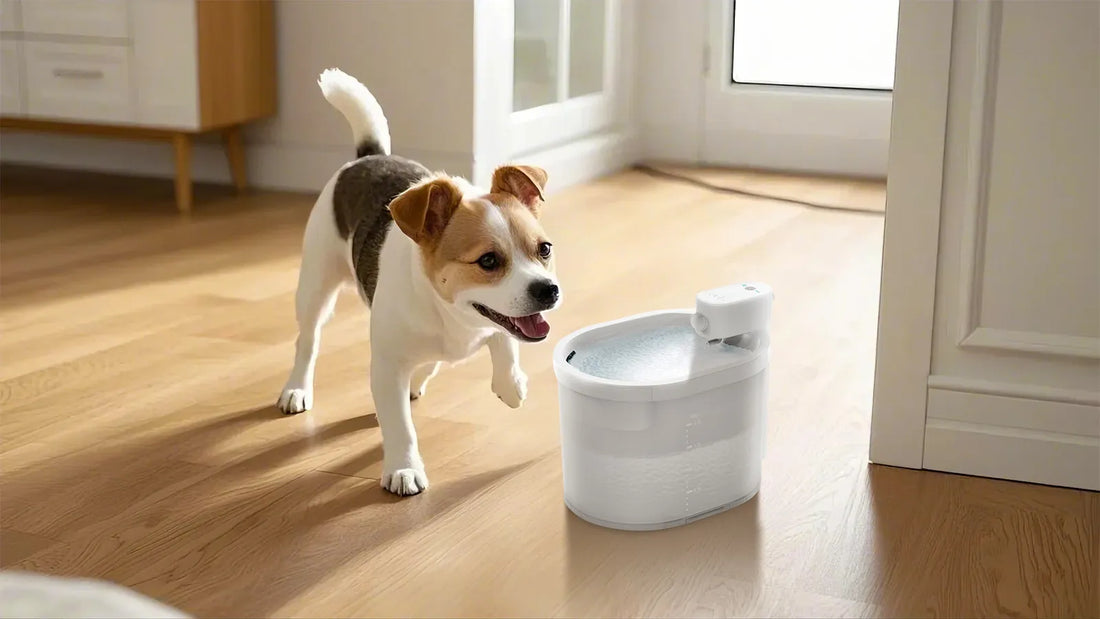If you've ever noticed your dog throwing up undigested food after drinking water, you're not alone. This unsettling behavior can be concerning for any pet owner. While it may seem alarming, understanding the underlying causes and knowing how to address them can help ensure your furry friend stays healthy and happy.
Common Causes of Dogs Throwing Up Undigested Food After Drinking Water
There are several reasons why your dog might vomit undigested food after drinking water. Identifying the root cause is the first step toward finding a solution.
Eating Too Quickly
One of the most common reasons dogs vomit undigested food is because they eat too quickly. When dogs gulp down their food, they also swallow a lot of air, which can cause discomfort and lead to vomiting, especially when they drink water afterward.
Drinking Water Too Fast
Just like eating too quickly, drinking water too fast can also cause your dog to vomit. When a dog drinks a large amount of water in a short period, it can upset their stomach and lead to regurgitation of undigested food.
Gastrointestinal Issues
Gastrointestinal problems, such as gastritis or an upset stomach, can also cause your dog to vomit undigested food. These issues can be triggered by various factors, including dietary changes, infections, or even stress.
Food Allergies or Intolerances
Food allergies or intolerances can lead to vomiting in dogs. If your dog is allergic to a specific ingredient in their food, it can cause an adverse reaction, including vomiting undigested food after drinking water.
Obstruction in the Digestive Tract
In some cases, an obstruction in the digestive tract can cause your dog to vomit undigested food. This is a more serious condition that requires immediate veterinary attention.
How to Prevent Your Dog from Throwing Up Undigested Food After Drinking Water
Preventing your dog from vomiting undigested food after drinking water involves addressing the underlying causes and making some adjustments to their routine.
Slow Down Eating and Drinking
To prevent your dog from eating or drinking too quickly, consider using a slow feeder bowl or a puzzle feeder. These tools can help slow down your dog's eating pace and reduce the risk of vomiting.
Monitor Water Intake
Keep an eye on how much water your dog is drinking and how quickly they are consuming it. If you notice your dog gulping down water, try offering smaller amounts at a time to prevent them from drinking too fast.
Check for Food Allergies
If you suspect your dog has a food allergy or intolerance, consult with your veterinarian. They may recommend an elimination diet to identify the problematic ingredient and suggest a suitable alternative diet.
Maintain a Consistent Feeding Schedule
Feeding your dog at consistent times each day can help regulate their digestive system and reduce the likelihood of vomiting. Avoid feeding your dog immediately before or after vigorous exercise.
Provide a Balanced Diet
Ensure your dog is receiving a balanced diet that meets their nutritional needs. A high-quality diet can help support their digestive health and reduce the risk of gastrointestinal issues.
When to Seek Veterinary Help
While occasional vomiting may not be a cause for concern, there are certain situations where you should seek veterinary help.
Persistent Vomiting
If your dog continues to vomit undigested food after drinking water despite your efforts to address the issue, it's important to consult with your veterinarian. Persistent vomiting can be a sign of a more serious underlying condition.
Other Symptoms
If your dog exhibits other symptoms, such as lethargy, diarrhea, or loss of appetite, along with vomiting, it's crucial to seek veterinary care. These symptoms could indicate a more severe health problem.
Signs of Dehydration
Vomiting can lead to dehydration, especially if your dog is not able to keep water down. Signs of dehydration include dry gums, sunken eyes, and reduced skin elasticity. If you notice these signs, contact your veterinarian immediately.
Home Remedies for Dogs Throwing Up Undigested Food After Drinking Water
In some cases, you can try home remedies to help alleviate your dog's vomiting. However, it's important to consult with your veterinarian before trying any home remedies, especially if your dog has a pre-existing health condition.
Fasting
Fasting for 12 to 24 hours can help give your dog's digestive system a break and reduce vomiting. Make sure to provide plenty of water during this time to prevent dehydration.
Bland Diet
After fasting, you can introduce a bland diet to your dog. Boiled chicken and rice are often recommended as they are easy to digest and gentle on the stomach.
Probiotics
Probiotics can help support your dog's digestive health and reduce the risk of vomiting. Consult with your veterinarian to find a suitable probiotic supplement for your dog.
Herbal Remedies
Certain herbal remedies, such as ginger or chamomile, can help soothe your dog's stomach and reduce vomiting. However, always consult with your veterinarian before using any herbal remedies.
Preventing Future Episodes
Preventing future episodes of your dog throwing up undigested food after drinking water involves making some long-term changes to their routine and diet.
Regular Exercise
Regular exercise can help support your dog's overall health and reduce the risk of gastrointestinal issues. Make sure to provide your dog with plenty of opportunities for physical activity.
Stress Management
Stress can contribute to gastrointestinal issues in dogs. Identify and address any sources of stress in your dog's environment to help reduce the risk of vomiting.
Regular Veterinary Check-ups
Regular veterinary check-ups can help ensure your dog's overall health and catch any potential issues early. Your veterinarian can provide guidance on maintaining your dog's digestive health.
Seeing your dog throw up undigested food after drinking water can be distressing, but with the right knowledge and approach, you can help address the issue and keep your pet healthy. By understanding the causes, making necessary adjustments, and seeking veterinary care when needed, you can ensure your dog stays happy and well. Don't let this common problem keep you from enjoying the wonderful companionship of your furry friend.













